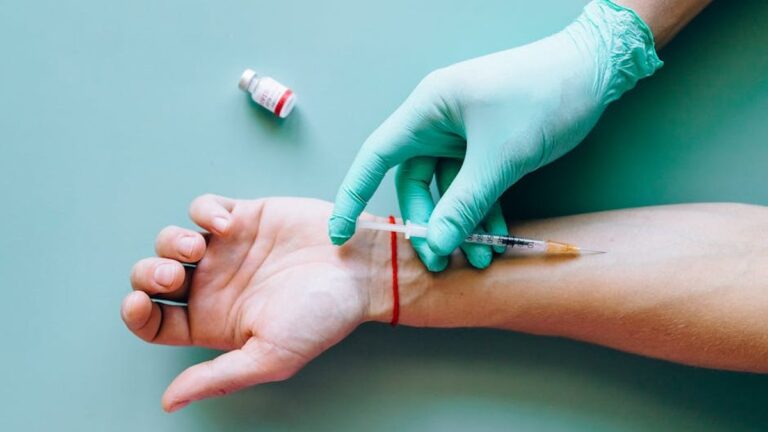The Rise of Biohacking: Ethical Considerations and Potential Benefits in 2025
Introduction: Biohacking’s Bold Leap into 2025
Biohacking, once relegated to the fringes of science and technology, is rapidly moving into the mainstream. As we approach 2025, it’s no longer a question of if biohacking will impact our lives, but how. This article delves into the ethical considerations and potential benefits of this burgeoning field, providing a comprehensive overview of what you can expect in the near future.
What is Biohacking? A Quick Refresher
At its core, biohacking is about understanding and manipulating your own biology to optimize health and performance. It encompasses a wide range of practices, from simple lifestyle changes to advanced technological interventions.
Types of Biohacking
- Nutrigenomics: Tailoring your diet based on your genetic makeup.
- Do-It-Yourself Biology (DIYbio): Experimenting with genetic engineering in non-traditional settings.
- Grinder Biohacking: Implanting devices for enhanced senses or functionality.
- Quantified Self: Tracking and analyzing personal data to improve health and well-being.
Potential Benefits of Biohacking in 2025
The potential benefits of biohacking are vast and varied, promising to revolutionize healthcare, enhance human capabilities, and extend lifespan. By 2025, advancements in technology and research will likely amplify these benefits.
Improved Health and Longevity
Personalized medicine, driven by biohacking principles, will become increasingly accessible. Imagine receiving tailored dietary recommendations and supplement regimens based on your unique genetic profile, maximizing your health and potentially extending your lifespan. Early detection of diseases through advanced biosensors and wearable technology will also become commonplace.
Enhanced Cognitive Function
Nootropics, or “smart drugs,” are already gaining popularity. By 2025, we can expect even more sophisticated nootropics designed to enhance memory, focus, and creativity. Transcranial direct current stimulation (tDCS), a non-invasive brain stimulation technique, may also become more widely adopted for cognitive enhancement.
Increased Physical Performance
Athletes are already using data-driven insights to optimize their training and performance. In the future, we may see even more advanced biohacks, such as gene editing to enhance muscle growth or improve oxygen uptake. However, ethical considerations surrounding performance enhancement in sports will need careful consideration.
Ethical Considerations: Navigating the Moral Maze
The rapid advancement of biohacking raises significant ethical concerns that must be addressed to ensure responsible innovation.
Safety and Regulation
One of the primary concerns is the safety of biohacking practices. DIYbio experiments, in particular, can pose risks if not conducted properly. Clear regulations and safety guidelines are crucial to protect individuals and the public from potential harm. The lack of regulation raises concerns about unproven and potentially dangerous practices being adopted without proper oversight.
Equity and Access
Biohacking technologies and treatments may initially be accessible only to the wealthy, exacerbating existing health disparities. Ensuring equitable access to these advancements is essential to prevent a future where only the privileged can benefit from biohacking.
Informed Consent and Autonomy
Individuals must be fully informed about the potential risks and benefits of biohacking interventions before making decisions. Protecting individual autonomy and ensuring informed consent are paramount, especially in the context of potentially irreversible procedures like gene editing.
Potential for Misuse
Like any powerful technology, biohacking could be misused for malicious purposes, such as creating bioweapons or enhancing individuals for unethical gains. Robust security measures and ethical frameworks are needed to prevent such misuse.
Practical Tips for Responsible Biohacking
If you’re interested in exploring biohacking, here are some practical tips to ensure you do so responsibly:
- Start small: Begin with simple lifestyle changes like optimizing your diet and sleep.
- Do your research: Thoroughly investigate any biohacking intervention before trying it.
- Consult with healthcare professionals: Seek guidance from doctors and other qualified healthcare providers.
- Prioritize safety: Choose reputable sources and follow safety guidelines carefully.
- Stay informed: Keep up-to-date with the latest research and ethical discussions in the field.
The Future of Biohacking: A Glimpse into 2025 and Beyond
By 2025, biohacking will likely be more integrated into mainstream healthcare and wellness practices. We can expect to see more personalized treatments, advanced wearable technology, and a greater emphasis on preventative care. However, the ethical considerations surrounding biohacking must be carefully addressed to ensure that these advancements benefit all of humanity.
Conclusion: Embracing the Potential, Addressing the Challenges
Biohacking holds immense potential to improve human health and well-being, but it also presents significant ethical challenges. By embracing a responsible and ethical approach, we can harness the power of biohacking to create a healthier and more equitable future for all. As we journey towards 2025 and beyond, continued dialogue, research, and regulation will be crucial to navigating the complex landscape of this transformative field. The future is biohacked, but it’s our responsibility to ensure it’s biohacked responsibly.






